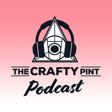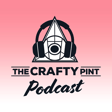
A Family Affair: 30 Years Of Bintani
“People’s tastes won’t go back to where they were before. So, whatever shape it takes in the next few years, we’re still going to see better beer in Australia.”
For 30 years and counting, Bintani have played a key role supplying the beer industry with essential ingredients. But more than that, they’ve also been a key pillar of support for brewers and industry events – and an important sounding board for ideas too.
For this episode of The Crafty Pint Podcast, James and Will were fortunate enough to be joined by Pete, Phil and Dale Meddings at Bintani HQ in Melbourne.
Pete founded Bintani in 1995 when he secured a distribution deal with DCL Yeast, which later became known as Fermentis, after taking still-at-school son Phil along for moral support.
He built the business to supply homebrew shops but, in the decades since, Bintani has grown with, and become a major player in, the craft beer industry. As a result, Phil and Dale are now co-CEOs of a much larger business responsible for putting products from a number of major brands into the hands of Aussie and Kiwi brewers, while still supporting all facets of the industry.
Before the main interview (and a detour into country music), Will and James chat about their recent jam-packed road trip, the former’s Beer By Design story on rebrands, the slick new Prospect Hotel & Cellars in Adelaide, and the addition of Kick Back Brewing to the Crafty directory.
As ever, we're always on the lookout for more Have You Done A Rallings? and Bluestone Yeast Brewery of the Month nominations, as well as listener feedback on the show so far. And if you're enjoying the show, feel free to like, subscribe, rate and comment!
Start of segments:
- 7:54 – Bintani Part 1
- 26:38 – Roxset
- 29:57 – Bintani Part 2
To find out more about featuring on The Crafty Pint Podcast or otherwise partnering with The Crafty Pint, contact craig@craftypint.com.

